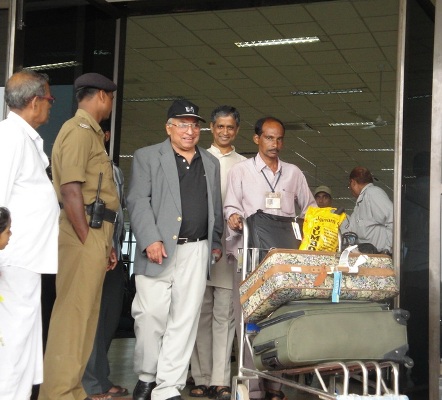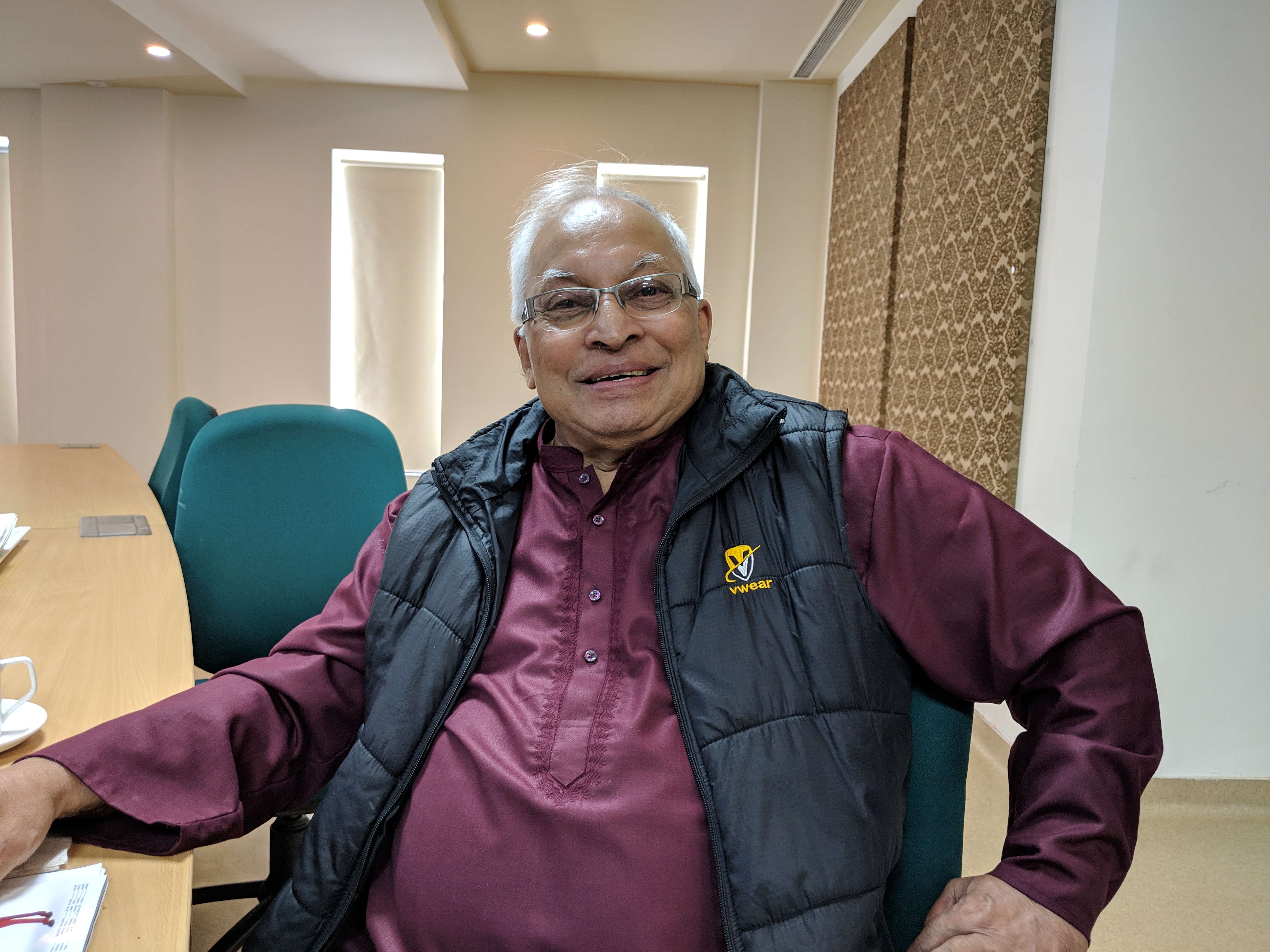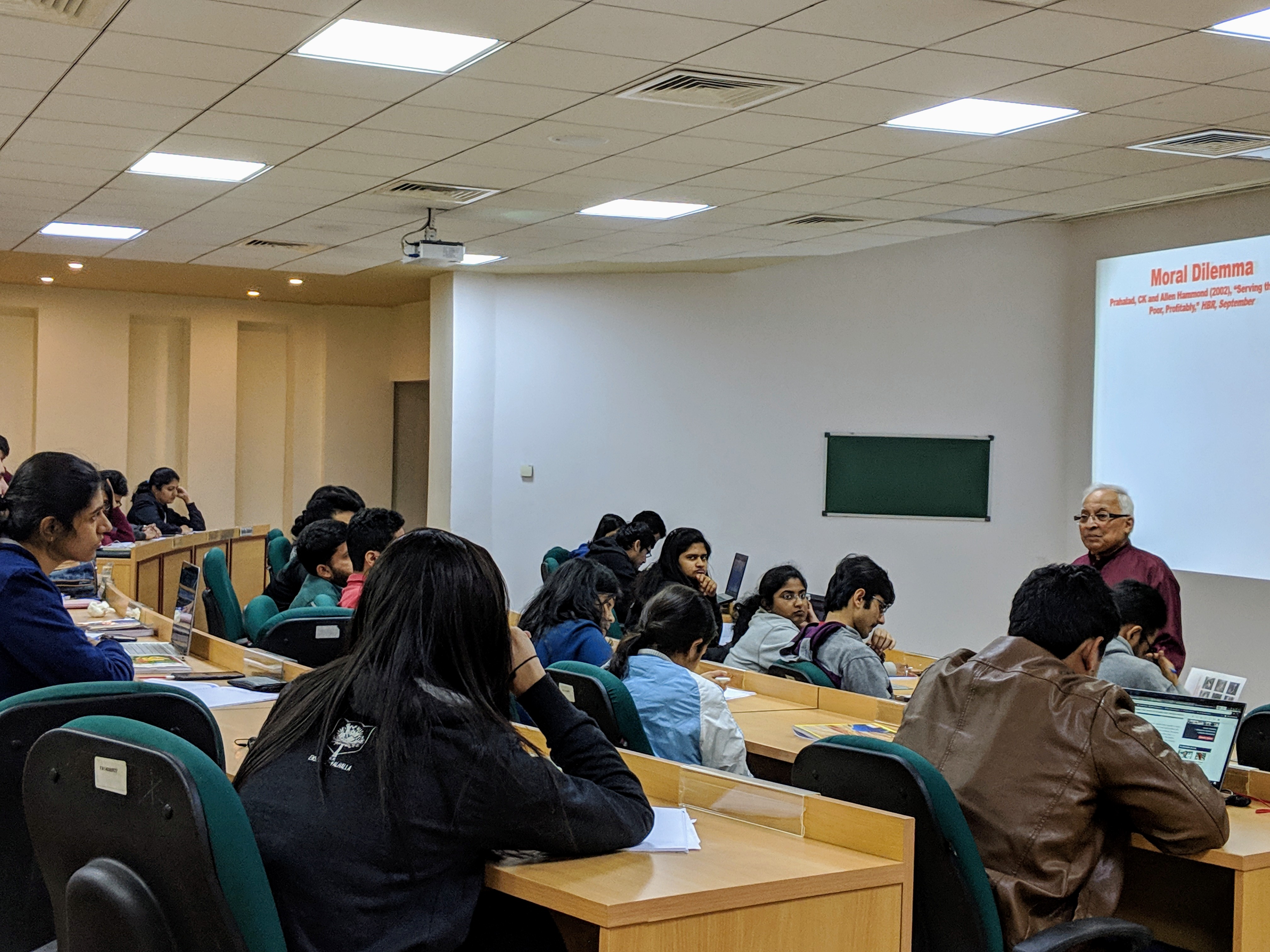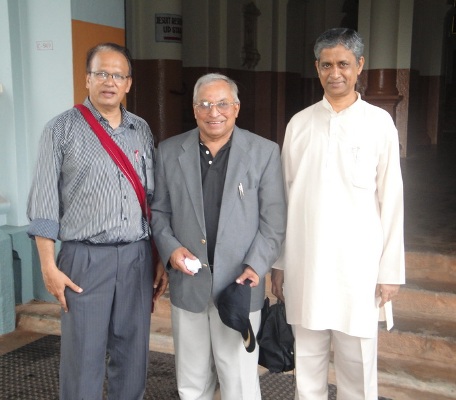The 81-year-old Father Oswald A J Mascarenhas aka Father Ozzie, as he is lovingly called by everyone, is the JRD Tata Chair Professor of Business Ethics at XLRI. Professor Ozzie did his MBA from Wharton in 1974 and then finished his doctorate in Finance and Marketing from Wharton in 1976. He joined XLRI on December 26, 1976 and was teaching Consumer Behaviour till 1983. He then left XL and joined the University of Detroit Mercy as the Charles H Kellstadt Chair of Marketing and Ethics. After 27 years, he came back again to India in 2010 and continued teaching, first in Mangalore and then in XLRI from 2013.

Sailesh: How long have you been teaching ethics here?
Father Ozzie: I started teaching ethics here in 2013. So, it has been 5 years.
Sailesh: You are a finance graduate. So, what made you think of taking ethics?
Father Ozzie: Facts are descriptions. Ethics is analysis. Let us say that you acquired a piece of land and now you want to displace the people living there. But does the purchase of land give you that power? Do you have the authority to take those decisions for the society? (A hint towards the POSCO issue in Odisha.) This is what I want students to do. Not just learn facts from the news but also learn to judge right and wrong. We can’t just focus on the good of business and ignore the bad. That will just create a huge imbalance one day and to avoid. Social responsibility is not only the job of the NGOs. We need to think about what means we are using to get profits. And that is where ethics come in.
I have done philosophy and theology for years before I took up finance and marketing. So I wanted to teach ethics but never got a chance to since someone always taught it wherever I went. That is why I wanted to pursue it and when Abe (Father Abraham, Director of XLRI) gave me that chance, I took it!

Sailesh:
A lot of colleges do not offer ethics as a stand-alone course as such. Do you feel that Ethics should be a mandatory course in B-Schools now?
Father Ozzie: Yes, definitely! Why it is necessary is because of the kind of curriculum that is taught in B-Schools. The curriculum that we teach is based on corporations and corporations are assessed by profit maximization. And profit maximization doesn't have any limit. So, profit maximization can be done by any method and means. Businesses will try to further their own ends, which is profits. When means and ends do not align, that is where ethics comes in.
Right now, if we go by the outcome of the last 30 years, we see that the income gap between the rich and the poor is increasing terribly and that is because corporations that are doing well are focusing on profit maximization. This is being achieved by executives who at times get compensations that can be almost 200-300 times more than an average employee in the same company. This is where the income gap starts to appear and then it slowly spills out into society. Management theories that support profit maximization are one of the culprits of this because they have become a kind of standard in all schools and we cannot really change that notion for some time.
By teaching corporate ethics we can at least make people aware that there is a problem and something can be done about that because eventually when there is too big a gap between the rich and the poor, it will have an influence on the markets as well as the society. If we see the history of many countries, we will see just that. For instance, the French Revolution happened because the Bourgeoisie had too much as compared to the commoners and we all know how that story went! Similar revolutions have taken place in Chile and Nicaragua and instead of going down that route, we can start investing in business ethics.
Sailesh: What is the desired outcome that you wish to see by the study of ethics?
Father Ozzie: We don’t want to impose ethics. We feel that business ethics is not so much to give you an awareness but also gives you a second line of thinking about what you think is the right thing. Obviously, profit maximization happens within the legal frame otherwise businesses won't exist too long. But the second line of thinking is "are we doing the right thing?" and ethics is central to the question of what is the right thing to do.
"The right thing" is a very complicated phrase and has many connotations defined in many theories. The whole point is that legality is a blocked concept because there is only good of the corporations that is defined by law. But that particular good can cause a lot of social externality. If we all think that the right thing to do is to pay the taxes or do a little bit of CSR, that is just one small way of doing the right thing. Of course, we need profits to survive, but do we really need to maximize it aggressively through borderline foul play? Can we think of profit-seeking instead of maximization? Or maybe think of "social wealth creation" instead of executive wealth creation?
We need to think to what extent we are helping to develop the market and the buying power among the people working for you. It is really difficult you know to do the right thing rightly. If you look at JRD Tata, he is the one who took his companies beyond compliance and law abidance. He is the one who imbibed the following questions in his companies:
1. are we doing the right things rightly?
2. are we doing the right things for the right reasons?
Once you start asking these questions, there's hardly any chance for you to be at fault as a business.

Sailesh: Why is it important to study ethics as a student?
Father Ozzie: Ethics also helps in character building. It doesn't just feed your mind. It feeds your characters, your emotions, your virtues, your passions in the right way. We feel that this is how we build good leadership and good citizens. We want to make them contributors to the world economy. Corporate ethics as a subject is the basic thrust that we give you to think how to give back to the society to repay what the society has given to you.
Sailesh: How would you describe Father Ozzie to people who do not know you?
Father Ozzie: I joined the Jesuit order at the age of 17 to study and teach theology. Rome condemned the three books I wrote after that. So, they sent me to the US to learn economics. With 4 US dollars and half a British pound, I landed in Chicago. But I soon found out that I didn’t have the qualifications to become a masters in economics. So, I went to Detroit after that where I had to endure the torture of learning mathematical economics. But God was graceful. After getting my Masters in Mathematical Economics, I applied and got into Wharton, where I pursued my MBA and PhD. I didn’t have a dollar to my name and so I worked in the parishes, teaching theology to the parishioners. I have always been a very happy person and I am never sad no matter what happens. I guess that is why with 4 Dollars and half a British Pound I had managed to get 3 Masters and one PhD in America and that is my story.

